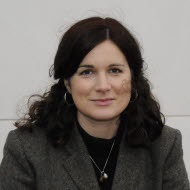Political Literatures
Political Literatures is an interdisciplinary research network founded by academics based in the Department of Humanities and Social Sciences in early 2020.
The steering committee consists of Vicky Angelaki (English), Samuel Edquist (History), Susan Foran (English), Anders E. Johansson (Comparative Literature), Sven Anders Johansson (Comparative Literature) and Biörn Tjällén (History).
Since the inception of our network, we have instituted an annual symposium, which takes place on 16 June (Bloomsday), underlining the discursive and dialectical core on which our network is based. These symposia bring together academics conducting research in any area that falls within the remit of Political Literatures, broadly conceived.
We work across disciplinary lines with a commitment to collaboration and to the exploration of ideas that have a direct bearing to how we frame our discourses on topics of key significance to how we live in and engage with our world. We take an approach that is equally synchronic and diachronic; we treat the past, present, and future as a synergy and dynamic process, rather than as disconnected and entirely separate. The '-s' is important to us: "Political Literatures" signifies a plurality of narratives and ideas; proliferation and possibility.
Further to our research-facing collaboration, we are committed to research-led teaching and pedagogical innovation, and are currently developing projects that we look forward to sharing in due course. The network is equally dedicated to fostering links within Sweden and beyond, and we are delighted to collaborate with academic partners across Europe.
If you would like to hear more about our network, you are most welcome to get in touch!
Political Literatures Courses, Advanced/PhD
Facts
Project period
200201—301231
Departments
Subjects
Project members






